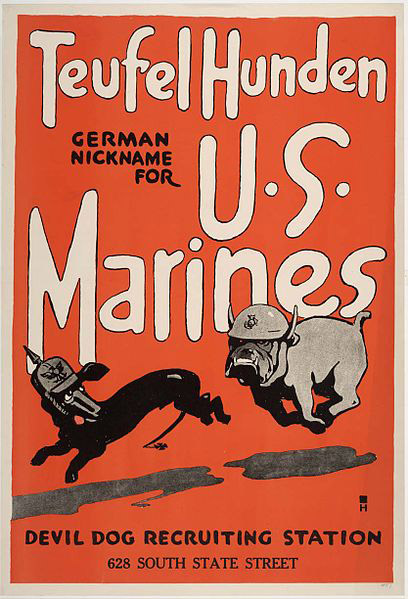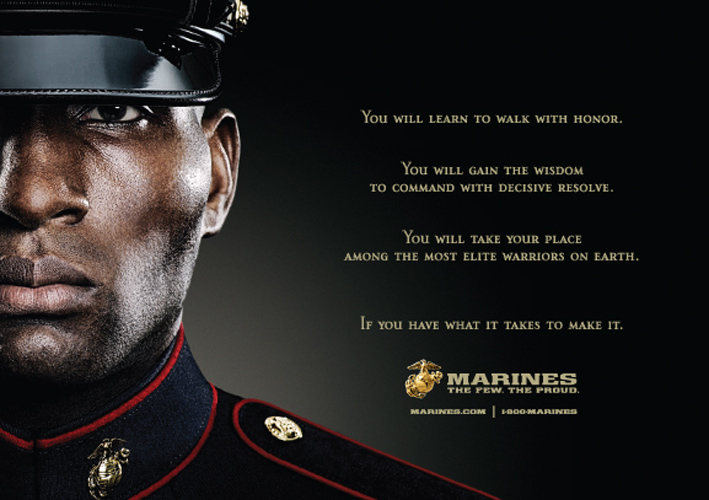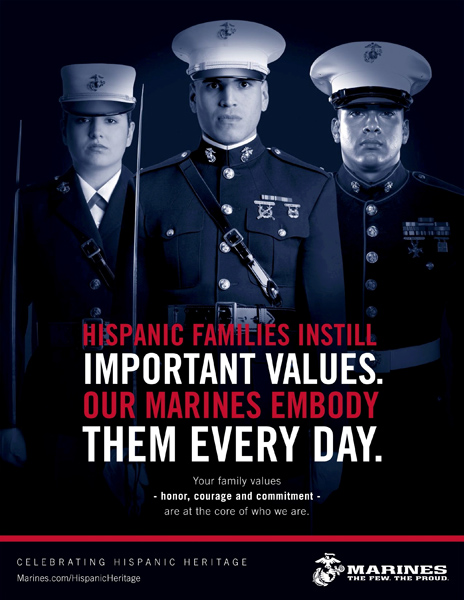The second Marines advertisement is more current and centers on the
image of a black male in a typical Marine uniform. To the right of the
soldier, a set of claims sets this ad apart from the others I found. The
truth claims in this ad set up a regime of truth about the Marine corps
and the role that they play. It states that they are the most elite
warriors on the earth and that by joining the Marines, one will gain
wisdom, leadership and honor. Finally, the last part of the regime is
both a claim and a challenge to the viewer. "... If you have what it takes
to make it..." This statement clearly is used to interpellate the target
audience, which is likely set at young males. By challenging the viewer,
the ad is indirectly asking him or her to prove themselves against the
regime of truth in order to gain the powers that the ad promises. This
is different than many military advertisements, especially older ones,
because it doesn't specifically ask the viewer to enlist today. It
instead doubts them, which I see as an equally powerful, yet possibly
not as ethically sound propaganda strategy in the enlistment process.
The third Marines image I found uses the intertextual signs of the
Marine corps. (i.e. the uniforms, swords and symbols) in the production
of a race specific recruitment campaign. While the ad doesn't
specifically ask the viewer to enlist, it explicitly compares what it
claims to be specific Hispanic family values to the values that the
Marine corps. alleges to instill. In claim, this comparison is in the
name of Hispanic heritage. This becomes problematic, however. Even
though the ad states that Hispanic families instill important values
that the Marines use every day, the values it provides (honor, courage
and commitment) are anything but race specific, and have little to do
with Hispanic heritage on a realistic level because the same could be
said about any race. Furthermore, the fact that the ad states that the
marines abide by these virtues every day seems to override and overpower
the first statement, in fact taking away from the focus on Hispanic
heritage in the first place.



